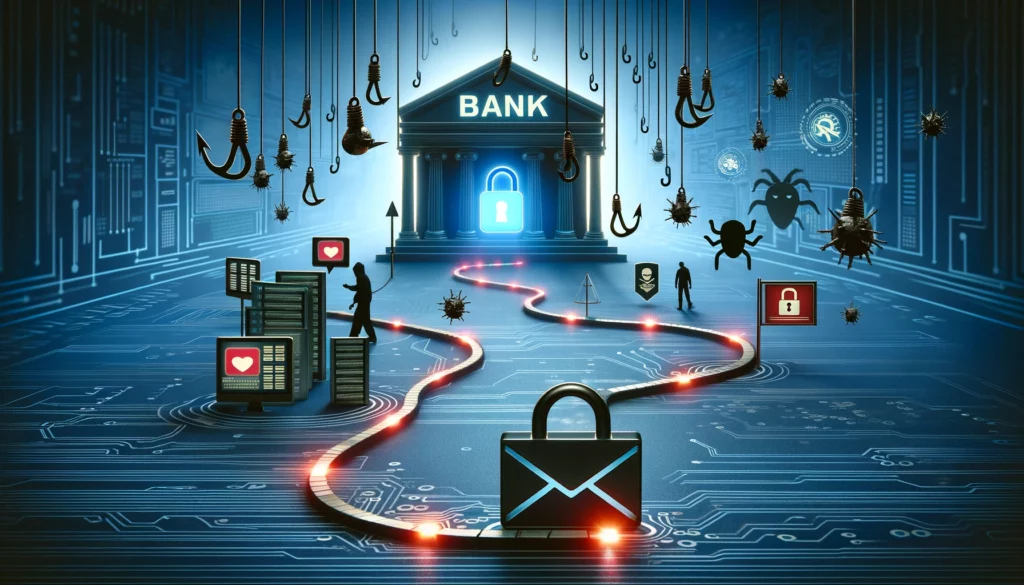Email has become a primary communication tool for both personal and professional purposes. However, with the convenience of email communication also comes the risk of falling victim to phishing scams and fraudulent emails. Phishing scams are deceptive attempts by cybercriminals to trick individuals into revealing sensitive information, such as login credentials, financial details, or personal data. In this blog post, we’ll explore how to recognize phishing scams and fraudulent emails, as well as provide practical tips to protect yourself and your organization from falling prey to these malicious tactics.
- Check the Sender’s Email Address: One of the first signs of a phishing email is an unusual or suspicious sender’s email address. Pay close attention to the domain name and ensure it matches the legitimate domain of the organization the email claims to be from. Cybercriminals often use misspelled or slightly altered domain names to mimic legitimate organizations.
- Look for Generic Greetings or Salutations: Phishing emails often use generic greetings like “Dear Customer” or “Dear User” instead of addressing you by your name. Legitimate organizations typically address you by your full name or username in their communications. Be wary of emails that fail to personalize their greetings.
- Beware of Urgent or Threatening Language: Phishing emails often use urgency or fear tactics to prompt immediate action from the recipient. They may threaten to suspend your account, claim that your account has been compromised, or warn of legal consequences if you don’t respond quickly. Take a moment to assess the email’s legitimacy and avoid making hasty decisions based on fear.
- Check for Spelling and Grammar Errors: Phishing emails often contain spelling and grammar errors, as they are typically hastily crafted by cybercriminals. Keep an eye out for unusual phrasing, awkward sentence structures, and spelling mistakes, as these can be telltale signs of a fraudulent email.
- Hover Over Links Before Clicking: Before clicking on any links or buttons in an email, hover your mouse cursor over them to preview the destination URL. Be cautious of links that lead to suspicious or unfamiliar websites, as they could be phishing sites designed to steal your login credentials or install malware on your device.
- Avoid Providing Personal Information: Legitimate organizations will never ask you to provide sensitive information like passwords, Social Security numbers, or credit card details via email. If an email requests such information, consider it a red flag and refrain from responding or clicking on any links within the email.
- Verify Requests for Financial Transactions or Wire Transfers: Be extra cautious when receiving emails requesting financial transactions or wire transfers, especially if they come from unfamiliar or unexpected sources. Always verify the legitimacy of such requests through alternative communication channels, such as phone calls or in-person meetings.
- Report Suspected Phishing Emails: If you receive a suspected phishing email, report it to your organization’s IT department or security team immediately. Most email providers also offer options to report phishing emails directly from your inbox, which helps prevent other users from falling victim to the same scam.
Recognizing phishing scams and fraudulent emails is essential for protecting yourself and your organization from cyber threats. By staying vigilant, scrutinizing incoming emails for signs of phishing, and following best practices for email security, you can minimize the risk of falling victim to these malicious tactics. Remember, when it comes to email security, trust your instincts and err on the side of caution.

Penetra Cybersecurity is at the forefront of defending the digital frontier, providing cutting-edge solutions to protect businesses and organizations from the ever-evolving threats of the cyber world. Established with a mission to create a safer internet for everyone, Penetra leverages a blend of advanced technology, expert knowledge, and proactive strategies to stay ahead of cybercriminals.
Ready to take the next step towards a more secure future? Schedule a consultation with us today and discover how we can help protect what matters most to you. Don’t wait until it’s too late—with Penetra Cybersecurity, your business isn’t just secure; it’s imPenetrable.




